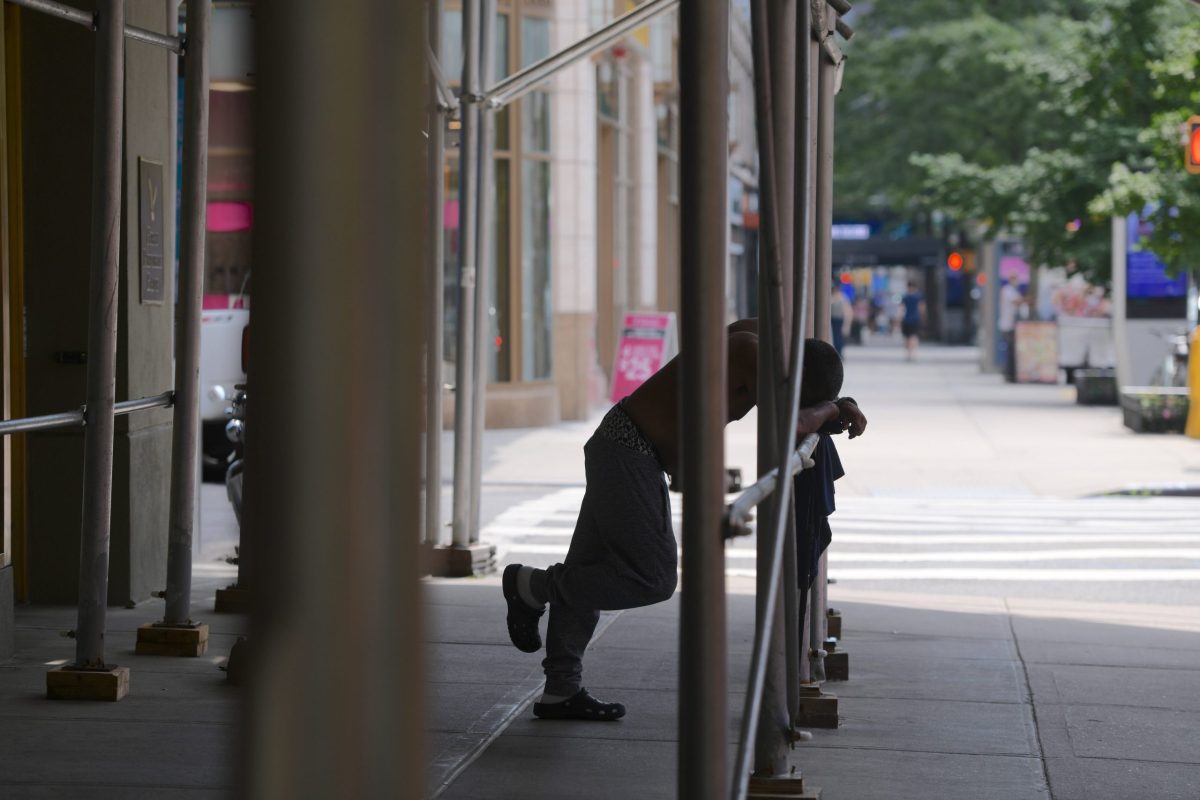Though some affluent Upper West Side residents might be scared away by homeless New Yorkers placed in neighborhood hotels, some residents of the controversial hotel shelters said Wednesday that the accommodations from the city helped them stay healthy during the pinnacle of the COVID-19 crisis.
Where one man described his living situation during the outbreak in other parts of the city as a jail-like atmosphere with COVID-19 running rampant among residents, the city Department of Homeless Services gave him his own space on the West Side to manage, keep clean and isolate until the worst of the wave blew over.
Moreover, Councilman Stephen Levin wants either the city or state government to formulate a real solution to homelessness through prevention efforts such as better housing vouchers before he’s term-limited out of office in 2021 along with the majority of City Council.
“I was in a congregated shelter with about 230 men, dorm-style… The situation started with a couple of elderly men with COVID-19 and then it spread like wildfire around the island by the name of Wards. Since being on the Upper West Side, I’ve felt 100 times more safe, 100 times more secluded,” Roberto Mangual said. “With the situation that’s going on in the Upper West Side with the homeless community not being wanted there, I feel like that’s very harsh. First, just because we didn’t choose to be here, we don’t control where we’re placed and sheltered. At the same time, I feel like a line has been drawn in the sand where some people support us, others don’t.”
As opposed to the services on the notoriously bad environment of Wards Island, Mangual said during a Wednesday press conference that the social services provided at the hotel he was placed in in the Upper West was a major improvement. As opposed to being a case number, he claims, he received more personalized treatment that helped where other social services had failed him.
Levin, who represents Brooklyn, called on the de Blasio administration to expand rental assistance programs, among other measures back in May in order to protect homeless New Yorkers from the threat of COVID-19. He has been a staunch critic of DHS and leadership within the agency since long before the pandemic.
“The reaction I think has been very disappointing that I’ve seen from residents of the Upper West Side. I will say this, we have one city and we’re all in this together… We don’t live in a city closed off by medieval walls or moats, people free to walk from Midtown to the Upper West Side to Harlem,” Levin said. “[Housing vouchers] are not worth it for landlords to take because they’re so far below the fair market rent… I don’t care who pays for it – the state wants to pay for it? That’s great. State’s not going to pay for it, the city needs to… I’m getting towards the end of my tenure in the City Council and I’m kind of running out of patience.”
According to Mangual, a higher value on housing vouchers from the city is needed now more than ever for the homeless population which would help low-income New Yorkers compete in the competitive market.
In late 2019, the infirmity of the city’s housing assistance programs became apparent as a couple spoke to amNewYork Metro about what the New York City’s housing voucher program got them: slum conditions in a crime-ridden section of Newark as opposed to the five boroughs where they worked and called home. The living situation did little good for Francisco Rivera who after months of commuting from New Jersey into the city, said he lost his job as a maintenance man in Manhattan due such a long commute.
Soon after, the city of Newark launched a federal lawsuit against the de Blasio administration which claimed the Human Resources Administration had placed homeless families in unsafe living conditions in New Jersey through the Special One-Time Assistance (SOTA) program. Mayor Bill de Blasio brushed off the lawsuit as a disregard for the “human reality” of homelessness.






































